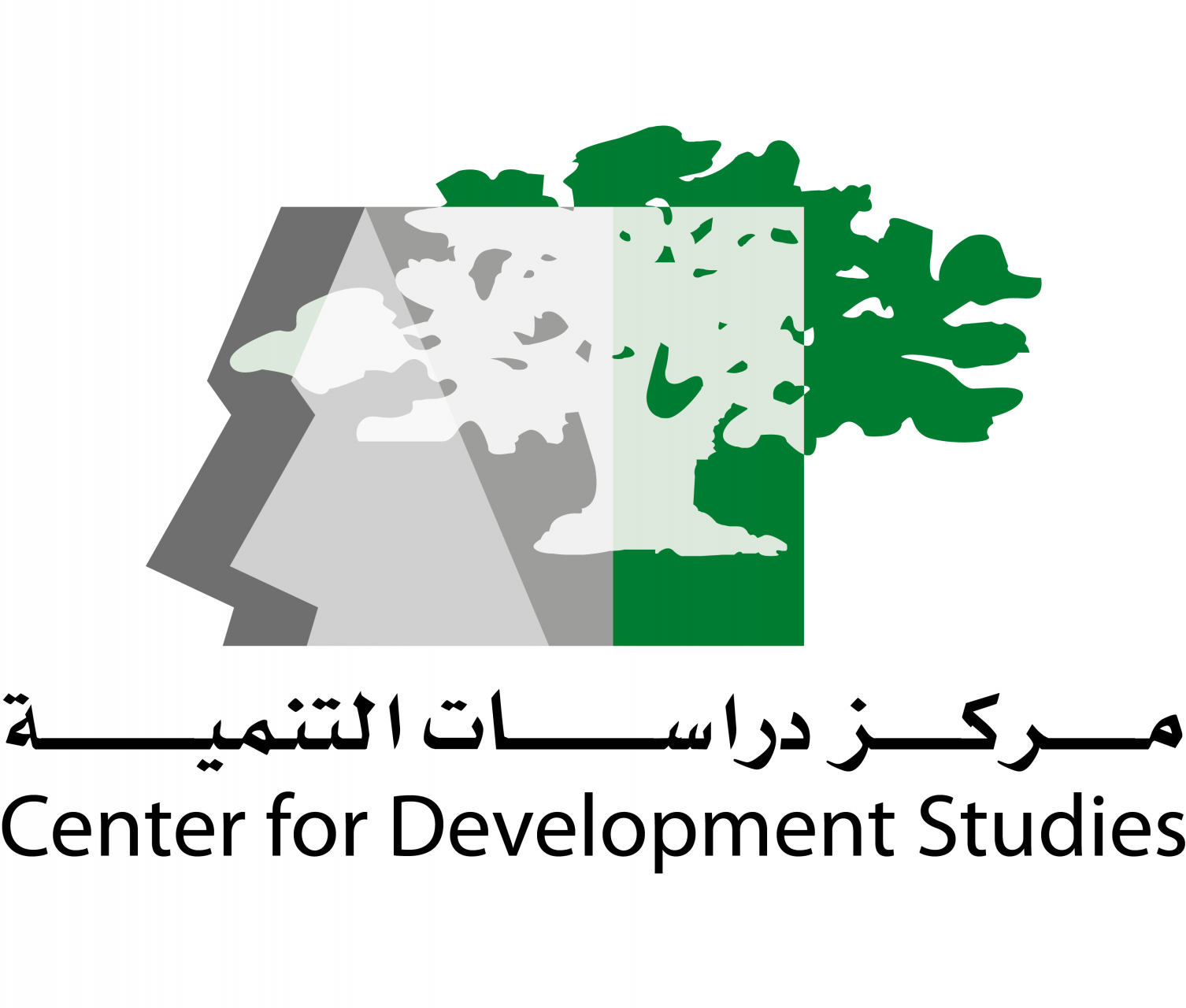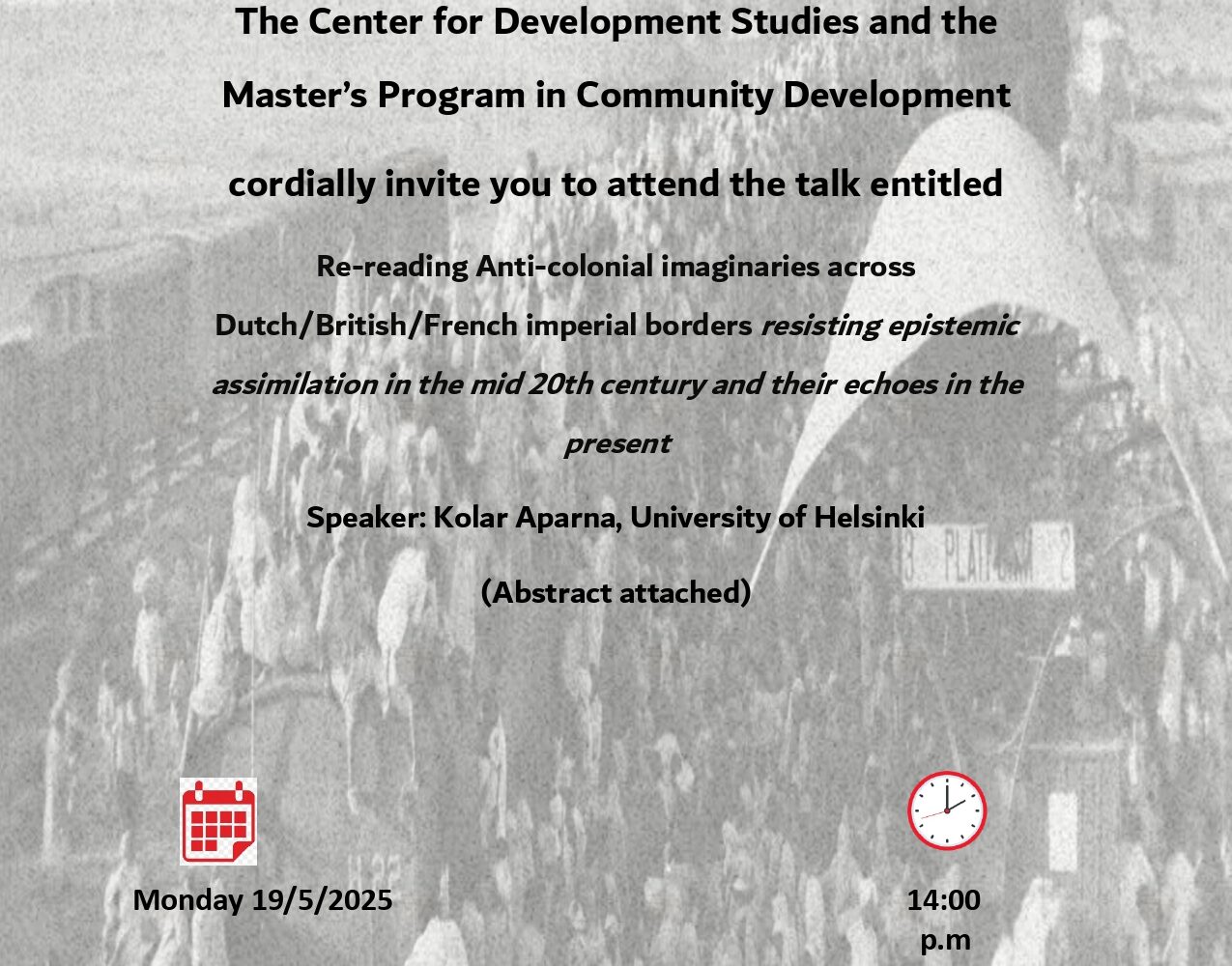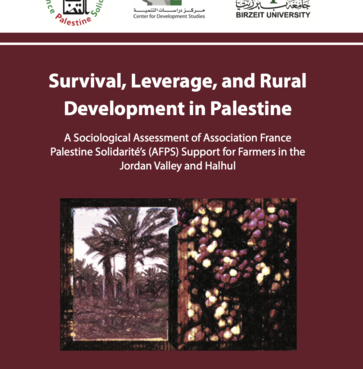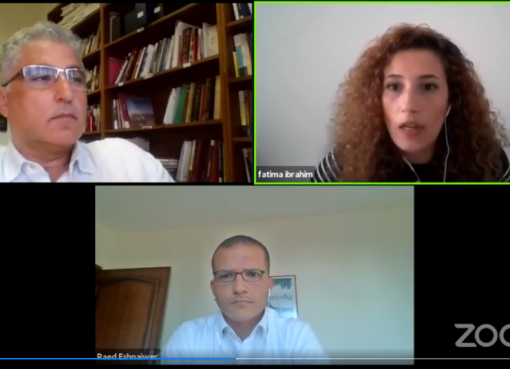The Center for Development Studies and the Master’s Program in Community Development held a talk entitled Re-reading Anti-colonial imaginaries across Dutch/British/French imperial borders resisting epistemic assimilation in the mid 20th century and their echoes in the present by the guest speaker Kolar Aparna from the University of Helsinki on Monday 19/5/2025 14:00 p.m over Zoom. The talk is part of the CDS talk series and is part of efforts to engage in South-South debates and the global experiences pertaining to colonialism and genocide.
ABSTRACT
In this lecture I read anti-colonial intellectual responses for social transformation resisting the oppression of Dutch, French and British imperial rule contrapuntally. I relate the conceptualisations across writings that were censored, on trial, anonymous, “under camouflage” refusing epistemic assimilation to the promised freedom from imperial rule and independent nation-states in the mid-20th century amidst ongoing violence of partition, and occupation. The texts are Suzanne Césaire’s work in the journal Tropiques, resisting French (Vichy) occupation; Annihilation of Caste by B.R.Ambedkar resisting British occupation; writings from the student collective Perhimpunan Indonesia resisting Dutch occupation, and Saadat Hassan Manto’s work as a member of the Indian Progressive Writers movement and a displaced artist-scholar writing from the India/Pakistan borderlands in times of partition and the violence of “freedom”. I ask, how do we re-read anti-colonial writings during the mid-20th century in the context of ongoing genocide, wars and violence of settler colonialism and imperial states today? How do these writings activate a liberatory politics that open rather than fix the trajectory of liberation? What notions of time are produced? What notions of space are produced? What modes of political consciousness come to be articulated? How do they speak to the present colonial conjuncture? What is the place of intellectuals today in producing plural anti-colonial imaginaries urgent for liberatory horizons resisting the psychological effects of colonialism?





